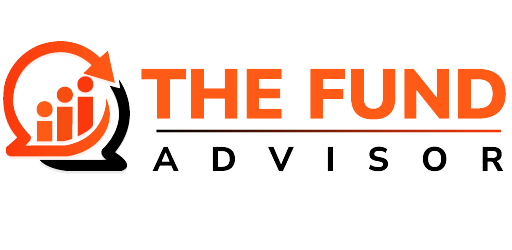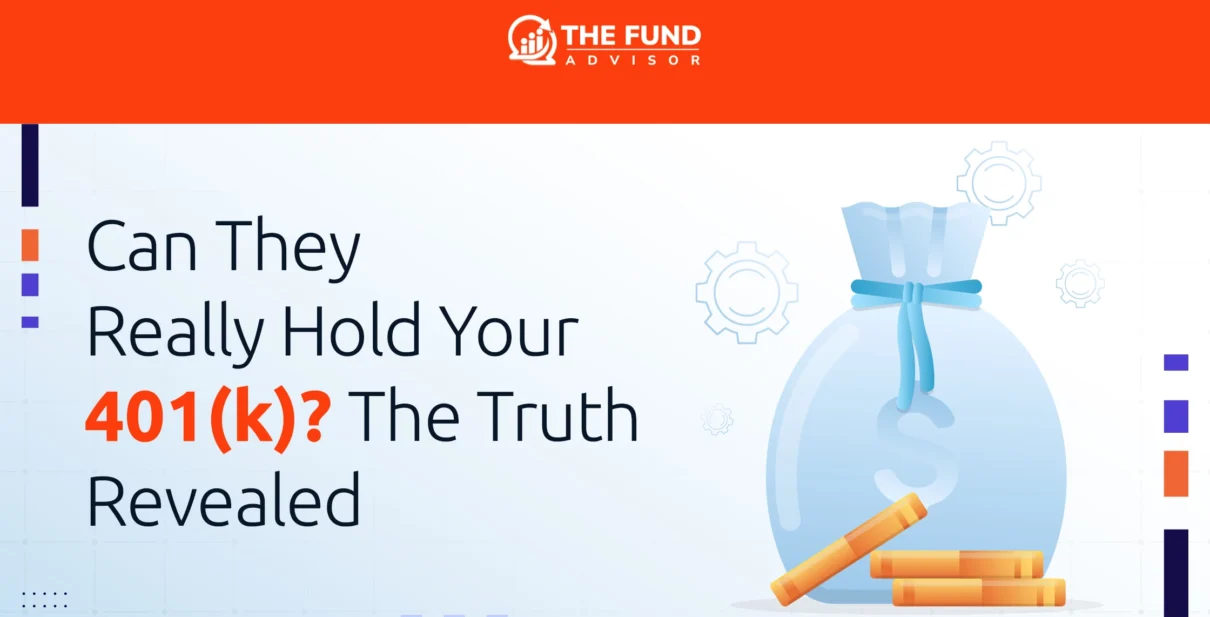- 10/03/2025
- by Christopher Anderson
- Retirement
When a person starts their career with a company, many benefits plans are attached to the person, like 401k savings account, an IRA, and other policies. But have you ever thought about what happened to these savings accounts when you leave your current job? Here, a serious concern arises: How long can a company hold your 401(k) after you leave? This is one of the crucial questions that needs to be understood, especially in such situations.
In one’s professional life, the person is switches jobs and regions in order to increase the earning potential and diversifying the experience. However, one common thing which goes with them is the retirement saving. And this saving is one of the most important assest that a person have. So, understanding the complete process and consequences for changing a job or leaving a employer becomes more important.
Taking this into mind, we are going to break down this complicated aspect to prevent any loss or penalty at the time of leaving the job. Let’s start.
Table of Contents
ToggleWhat Happens To My 401(k) After I Leave A Company?
You are the real owner of the 401(k) account that belongs to you. However, the management and authorities remain with the third-party provider and the employer unless you take any action.
At the time of leaving the job, you generally have four options to manage the 401 (k) account, which are :-
- If possible, then leave the money vested in your 401(k) account with the current or past employer who provided you with this.
- Roll over the funds of the 401(k) account into an IRA (Individual Retirement Account).
- Roll over the current 401(k) account savings into the new 401(k) account provided by the new employer if you continue a new job.
- Cash out from the 401(k) account, where taxes and penalties are applied on the vested amount.
With time, in the 401 (k) account, a good amount of money is saved, which is accumulated by your contribution, investment, and employer’s match. Losing this money will affect your financial situation because you need to start saving again.
For more details, check out this guide on can I cancel my 401k and cash out while still employed.
How Long Can A Company Hold Your 401(k) After You Leave?
A company can technically hold your 401(k) indefinitely, but only under certain conditions. This all depends on whether you take any action at the time of leaving against the 401(k) savings account or not. It doesn’t mean that you will loss your retirement saving, but there are some conditions and money access option comes into play.
Generally, if the vested amount is less than $5000, then the employer will roll this into a new IRA without your approval. Mostly, in the case where the vested amount is under $1000, the employer will directly provide you with a check of this amount.
The employer legally has the right to keep the 401k vested amount, which is more than $5000, if you didn’t take any action to withdraw or roll it to a new retirement savings account. So, it only depends on your account balance and your action against the withdrawal.
Holding A 401(k) After Termination
Yes, the employer can hold your 401(k) under some legal guidance. This doesn’t mean that you will lose the money in your 401(k) account. The money you are contributing and the return on investment are your money, and only you can take or withdraw this money if you leave the job.
How long can a company hold your 401(k) after you leave? This question was solved, but aspects remain regarding what time it takes to process the 401(k) account. Depending on your action, any employer cannot refuse to provide you, your saved money if you apply to do so. The Employment Retirement Income Security Act (ERISA), which is a federal law, is responsible for protecting employees.
This act implies that the employer has to process the withdrawal rollover of the funds vested in your 401 (k) account within 40 – 90 days, depending on the plan administrator’s procedure.
It’s also important to understand What happens when your 401k is vested and how it impacts your retirement savings.
401(k) Holding And Retirement
There is no such time limit for the company to hold your 401 (k) account. But you can claim the account and money.
There are two cases in this scenario :-
- If you retire in a general way, like when the retirement age comes, you automatically retire, then you can withdraw funds from the 401 accounts if your age is more than 59½ years without any penalty, but taxation will be applicable.
- If you get fired or terminated from your job, then the process is the same. You need to report to your HR department and start the process of withdrawing or rolling the vested amount of money in the 401 (k) account.
How long can a company hold your 401(k) after you leave? The employer cannot block you from accessing your funds unless :-
- You haven’t completed the required paperwork.
- The funds haven’t fully vested (usually only applies to employer contributions).
- There’s a processing backlog, which must still comply with ERISA timelines.
What Happens If My Employer Won’t Release My 401(k)?
Generally, the employer will release the 401(k) account based on the method of trasnfer you chose. But, if your employer won’t release your 401(k) account, then you need to take some action that is listed below :-
Contact The Plan Administrator
You need to contact the Plan Administrator and the HR department of your company about the withdrawal or rolling over the 401(k) savings account. This is becuase the respective department is resposible for the trasnfer of retirement accounts to the employee after their leaving.
Request The Plan Documents
Request the documents and term papers of your 401(k) savings account from the HR department of the company. This help in understanding all the information related the account including the statements, and loans.
File A Complaint With The Department of Labor
Suppose your employer or the plan administrator is falsely withholding your 401(k) account. In that case, you can file a complaint with the company with the Employee Benefits Security Administration (EBSA), a branch of the Department of Labor.
Consult A Financial Or Legal Professional
In such cases, it is advised to consult with an expert legal advisor to make the right move. An expert will clear the process and helps you to take wise actions that will help in avoiding the losses and penalties.
There are many legal actions and human rights rules present by which you can fight for any misleading.
What Happens to Loans Against 401(k) After Leaving a Job?
There is another concern that arises when you are leaving with an outstanding 401(k) loan with the previous employer. Many employees prefer to take a 401(k) loan rather than make a hardship withdrawal in such an urgent need for money, so when a person leaves their employer with an outstanding 401(k) loan. The person needs to repay the loan within a fixed time frame. However, the repayment period depends on various factors like plan rules, employer’s norms, etc.
Generally, you need to repay the loan till the tax filing date of the year you left, which is often 60 to 90 days. In such a case, where you fail to pay the loan, the unpaid amount will be counted as a distribution. Once the amount becomes a distribution, the tax implications will be applicable. Also, this will impose a 10% early withdrawal penalty if you are under the age of 59½ years. So, it is important to consult with your HR department at the time of leaving regarding the 401(k) loan to avoid any penalties and fines.
Conclusion – How Long Can A Company Hold Your 401(k) After You Leave?
How long can a company hold your 401(k) after you leave? The time they hold your 401(k) is indefinite, because if the vested amount is more than $5000, then you need to take some action quickly. Otherwise the employer has the authority to hold the 401(k) account. But don’t panic, your money is always yours. With the right action, you can easily withdraw or roll over the 401(k) account, which belongs to you. 401(k) savings accounts are like a solid foundation for retirement life. Leaving them behind can cause a serious loss of money and financial stability.
If you find this article useful the please go through our other articles and follow us. Also, share this on social media and with your family and friends.
Frequently Asked Questions
Can a company take away your 401(k) if you quit?
No, any employer cannot take away your 401(k) if you quit the job; your money is always yours. But it needs some action to withdraw or roll it over as soon as you leave this job.
What happens if my employer won’t release my 401(k)?
Firstly, your employer cannot falsely withhold your 401(k) account in any circumstances. But if this happens or any such case occurs, then you can file a complaint against the employer with the Employee Benefits Security Administration (EBSA) and fight for the right justice.
Can a company legally hold your 401(k)?
Yes, the company legally holds the 401(k) amount until you take any action if the amount is higher than $5000.
How do I cash out my 401(k) after I quit?
After quitting, cashing out from the 401(k) becomes easy. You can use different ways, like cashing out the money, which charges a 10% penalty, you can roll over the 401(k) into an IRA, or you can roll over the 401(k) into another 401(k) account.
Will I lose my 401(k) if I quit?
No, you will not lose your 401(k) savings account at any time. Instead, in the case of quitting the job, you can withdraw or roll over the vested amount of the 401(k) account. With the help of different ways, cashing out becomes easy.






